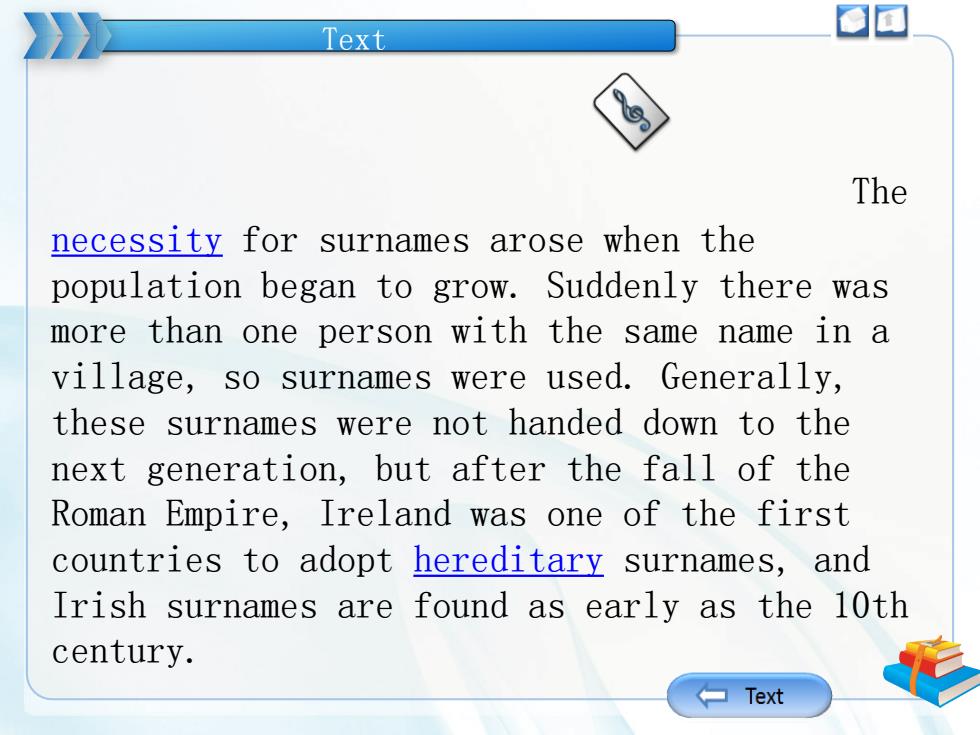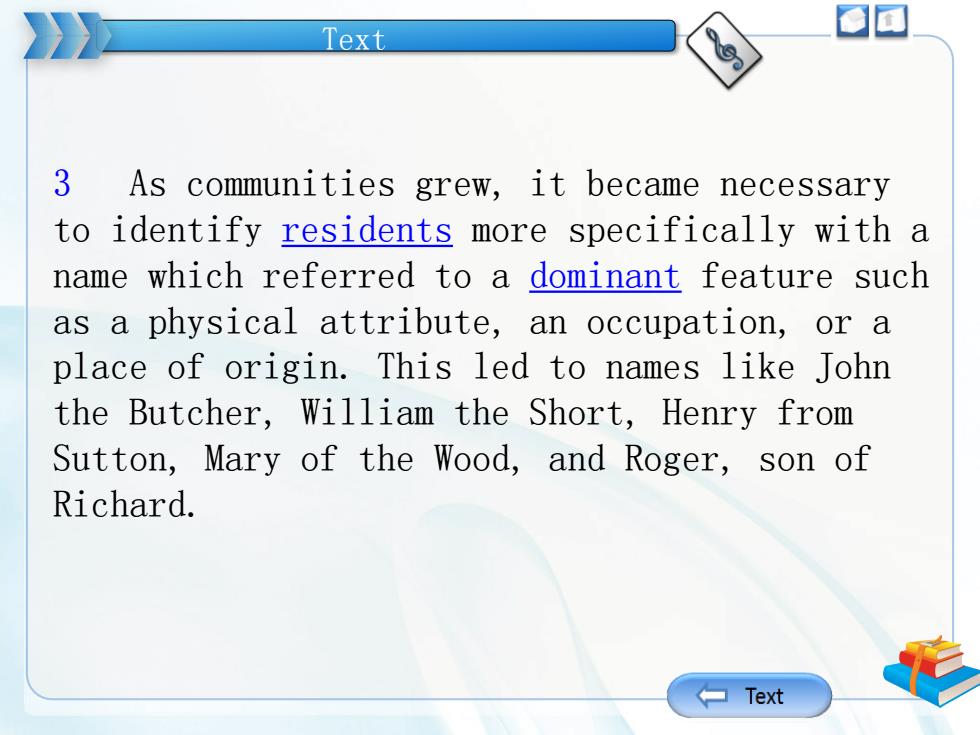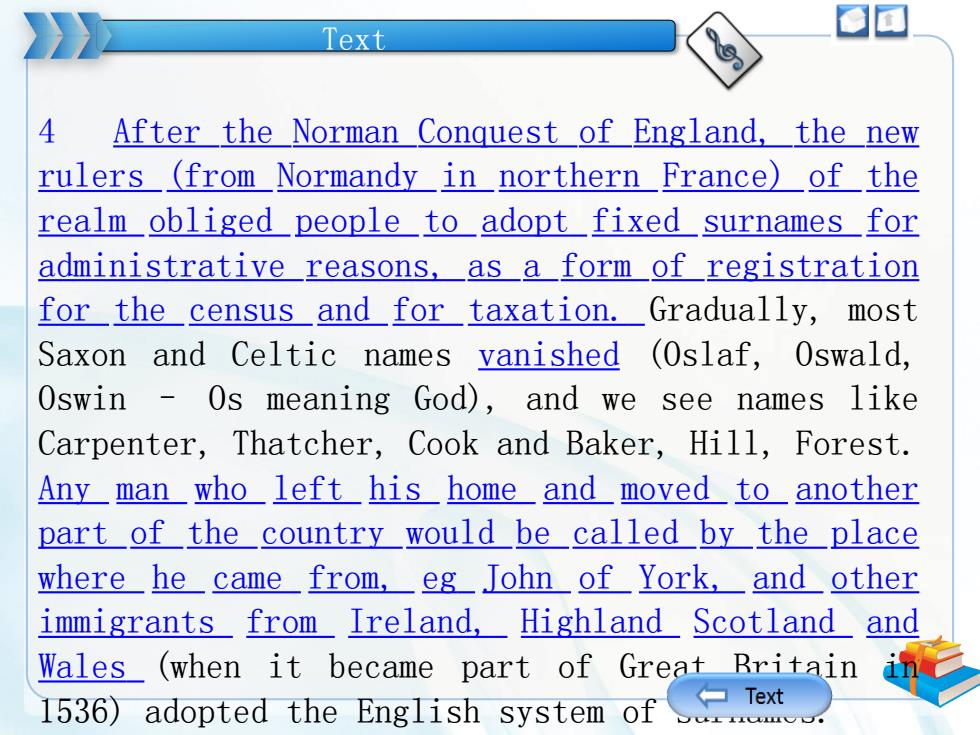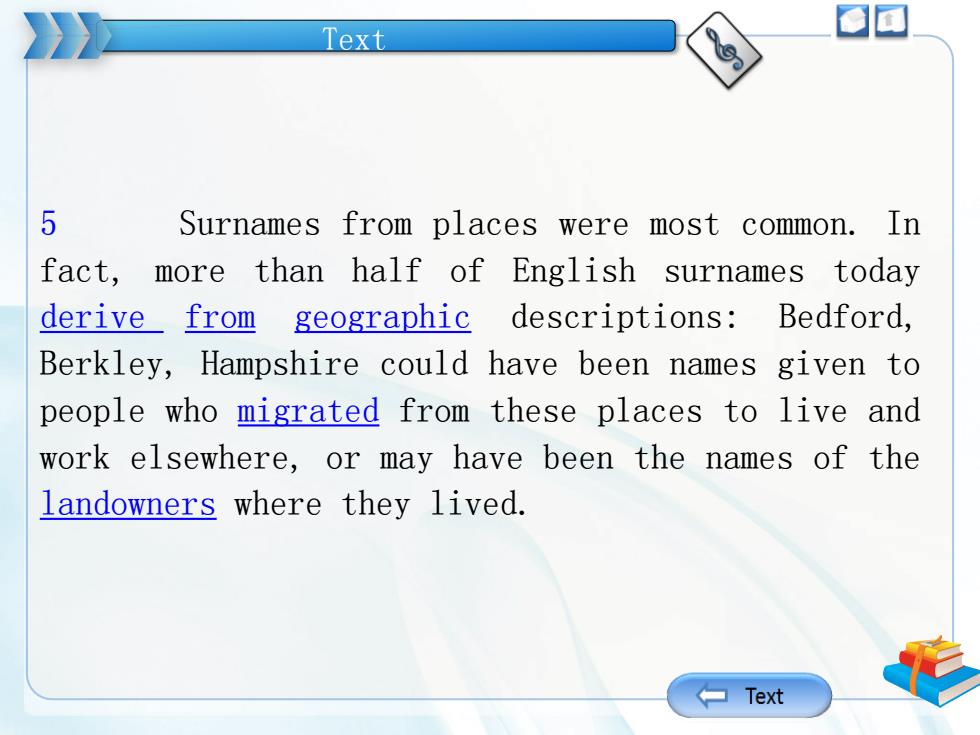
Text 2 Different areas of the world adopted surnames at different periods in time.The Chinese were among the first people to use family names to honour their parents from about 2800 BC.In Europe,the Romans started calling people by their given name and family name in Latin from 300 BC,but it wasn't common practice throughout Europe until the 10th or 11th century,when first,the lords and gentry,then middle-class citizens,and finally everyone used supes. More. Text
2 Different areas of the world adopted surnames at different periods in time. The Chinese were among the first people to use family names to honour their parents from about 2800 BC. In Europe, the Romans started calling people by their given name and family name in Latin from 300 BC, but it wasn't common practice throughout Europe until the 10th or 11th century, when first, the lords and gentry, then middle-class citizens, and finally everyone used surnames. Text

Text a回 The necessity for surnames arose when the population began to grow.Suddenly there was more than one person with the same name in a village,so surnames were used.Generally, these surnames were not handed down to the next generation,but after the fall of the Roman Empire,Ireland was one of the first countries to adopt hereditary surnames,and Irish surnames are found as early as the 10th century. Text
The necessity for surnames arose when the population began to grow. Suddenly there was more than one person with the same name in a village, so surnames were used. Generally, these surnames were not handed down to the next generation, but after the fall of the Roman Empire, Ireland was one of the first countries to adopt hereditary surnames, and Irish surnames are found as early as the 10th century. Text

Text 3 As communities grew,it became necessary to identify residents more specifically with a name which referred to a dominant feature such as a physical attribute,an occupation,or a place of origin.This led to names like John the Butcher,William the Short,Henry from Sutton,Mary of the Wood,and Roger,son of Richard. ▣Text
3 As communities grew, it became necessary to identify residents more specifically with a name which referred to a dominant feature such as a physical attribute, an occupation, or a place of origin. This led to names like John the Butcher, William the Short, Henry from Sutton, Mary of the Wood, and Roger, son of Richard. Text

Text 回 4 After the Norman Conquest of England,the new rulers (from Normandy in northern France)of the realm obliged people to adopt fixed surnames for administrative reasons,as a form of registration for the census and for taxation.Gradually,most Saxon and Celtic names vanished (Oslaf,Oswald, Oswin -Os meaning God),and we see names like Carpenter,Thatcher,Cook and Baker,Hill,Forest. Any man who left his home and moved to another part of the country would be called by the place where he came from,eg John of York,and other immigrants from Ireland,Highland Scotland a and Wales (when it became part of Great Britain 1536)adopted the English system of ▣Text
4 After the Norman Conquest of England, the new rulers (from Normandy in northern France) of the realm obliged people to adopt fixed surnames for administrative reasons, as a form of registration for the census and for taxation. Gradually, most Saxon and Celtic names vanished (Oslaf, Oswald, Oswin – Os meaning God), and we see names like Carpenter, Thatcher, Cook and Baker, Hill, Forest. Any man who left his home and moved to another part of the country would be called by the place where he came from, eg John of York, and other immigrants from Ireland, Highland Scotland and Wales (when it became part of Great Britain in 1536) adopted the English system of surnames. Text

Text 5 Surnames from places were most common.In fact,more than half of English surnames today derive from geographic descriptions:Bedford, Berkley,Hampshire could have been names given to people who migrated from these places to live and work elsewhere,or may have been the names of the landowners where they lived. Text
5 Surnames from places were most common. In fact, more than half of English surnames today derive from geographic descriptions: Bedford, Berkley, Hampshire could have been names given to people who migrated from these places to live and work elsewhere, or may have been the names of the landowners where they lived. Text